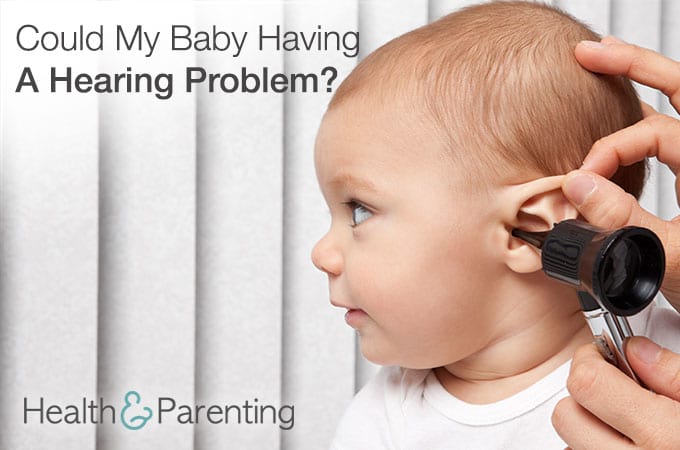Your baby’s hearing plays a big role in her ability to learn. That’s why it’s so important to recognize signs of a hearing problem early. The vast majority of babies are born with perfect hearing. But worldwide, about 2000 babies a day are born with a hearing problem. Keep in mind, the number of babies born worldwide each day is estimated to be over 300,000. The odds are very much in your favor your baby’s hearing is fine.
Types of Hearing Problems
Hearing loss is one problem that can affect babies, but not the only one. Hyperacusis, which is an oversensitivity to sound, can also develop in babies. Whether it involves hearing loss or hyperacusis, it’s important to spot signs as early as possible so the problem can be remedied.
Signs of Hearing Loss
Although it can vary by location, many hospitals screen newborns for hearing loss before they leave. If your little one was not given a hearing test, speak to your pediatrician regarding administering the test.
But hearing loss can also develop a bit later in your baby’s life, so it’s helpful to be aware of symptoms. Symptoms of hearing loss can vary depending on the extent of the impairment, but there are some typical signs. For example, if your baby is three months old and does not seem to respond to sound or startle in response to a loud noise, it could indicate a problem.
Similarly, around four months if your baby is not turning his head towards sounds he cannot see or trying to imitate sounds by about six months, it could be due to a hearing impairment. If between nine and 12 months, your baby does not respond to his name or is not saying single words, such as “dada” by his first birthday, it could be a sign he has some degree of hearing loss.
Signs of Hyperacusis
Hyperacusis may be a bit harder to identify early on. After all, your baby can’t tell you that sounds seem overly loud. But one sign to be aware of involves your baby becoming especially distressed at loud noises. Also, if your baby screams at noises you barely notice, it could also indicate a problem.
Keep in mind, if your baby has one of the above signs it does not necessarily mean there is a problem. If you are unsure or suspect your little one does have a hearing problem, try not to panic. See your pediatrician to get a hearing test. Some hearing problems are reversible. If your baby does have a hearing problem, there are several treatments and interventions that can help your baby continue to thrive.
Written by MaryAnn DePietro @ writerlady34
This information is not intended to replace the advice of a trained medical doctor. Health & Parenting Ltd disclaims any liability for the decisions you make based on this information, which is provided to you on a general information basis only and not as a substitute for personalized medical advice. All contents copyright © Health & Parenting Ltd 2016. All rights reserved.










